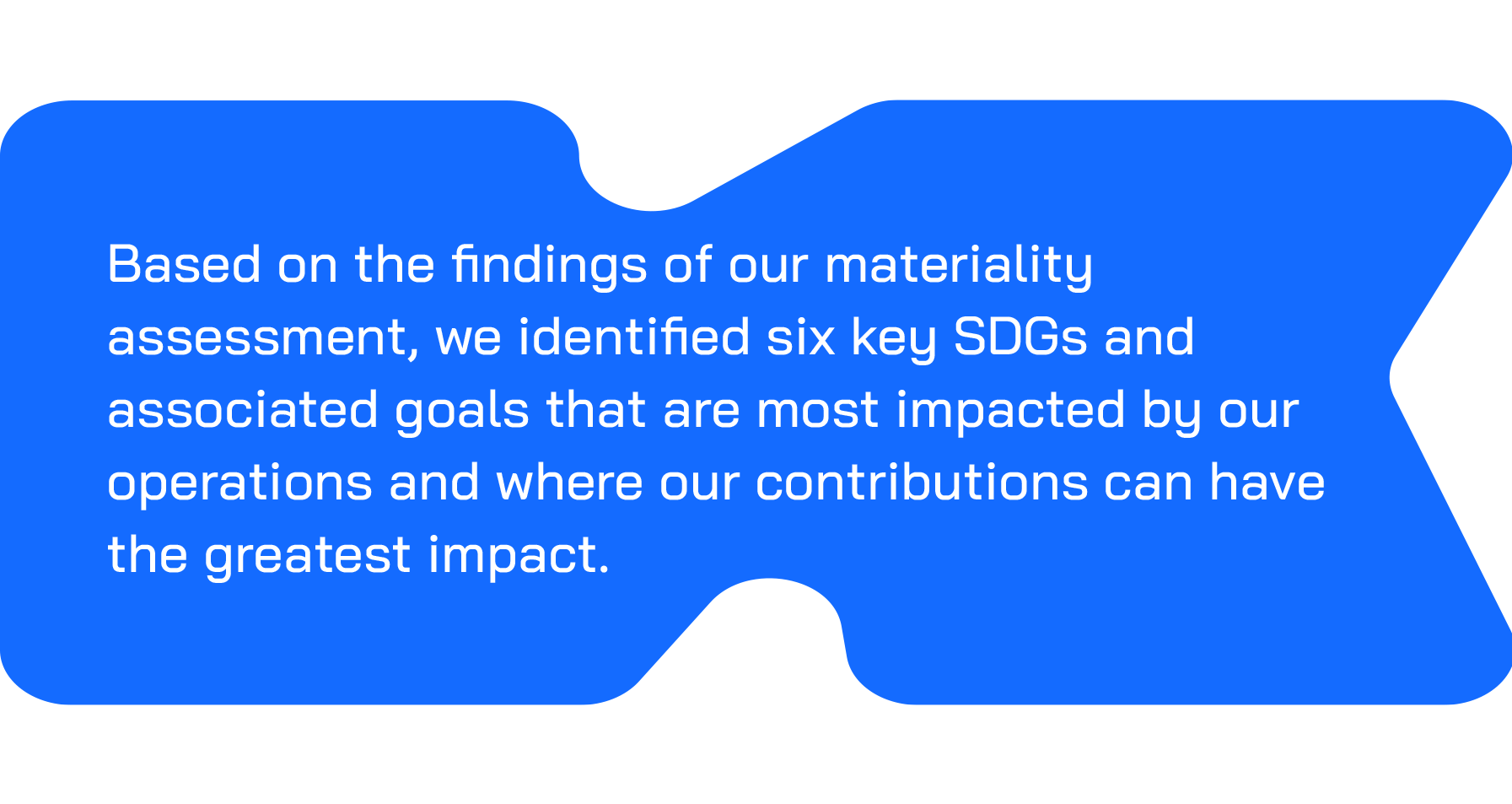

During 2022, we updated our Materiality Assessment with a third-party expert to respond to the current automotive context, considering all the social and environmental issues in the regions where Metalsa has presence. To determine the material issues, we analyzed priority topics and the importance and impact they have for our stakeholders, as well as for Metalsa itself, due to how they could affect the achievement of the business objectives. The methodology used considered:
Our Leadership Team and Board of Directors shared the strategic business vision.
Diagnosis of Metalsa’s sustainability status.
Analysis of direct and indirect competition.
Research of sustainability and corporate standards, such as: SASB, GRI, Sustainalytics, Bloomberg, Fitch, SBTi.
Strategic Top Mgmt. workshop to define motivators, SWOT, sustainability risks, and stakeholders.
Engagement with relevant internal and stakeholder through interviews and focus groups.
Prioritization of information and material issues based on frequency, impact, and qualitative assessment.
Validation of results by sustainability leader and directors.


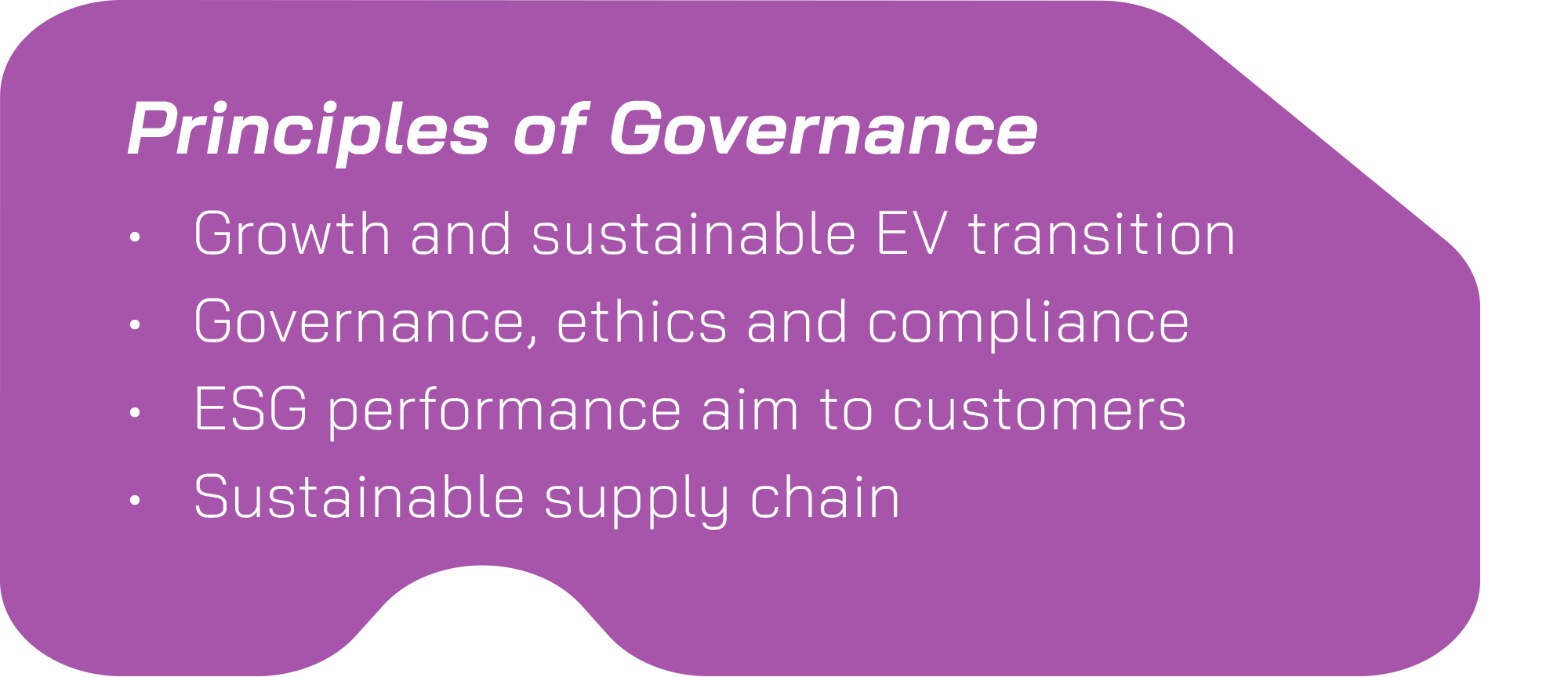
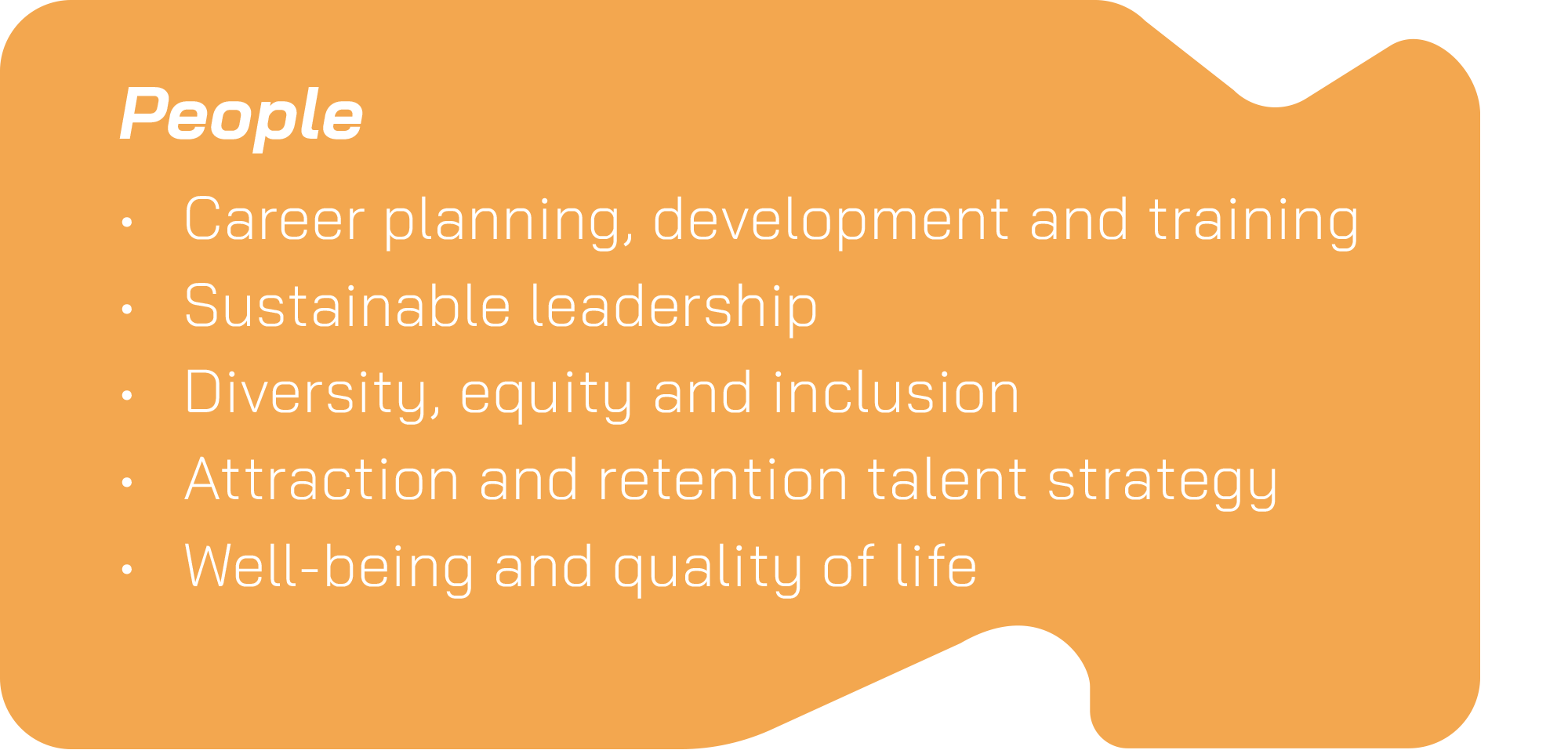
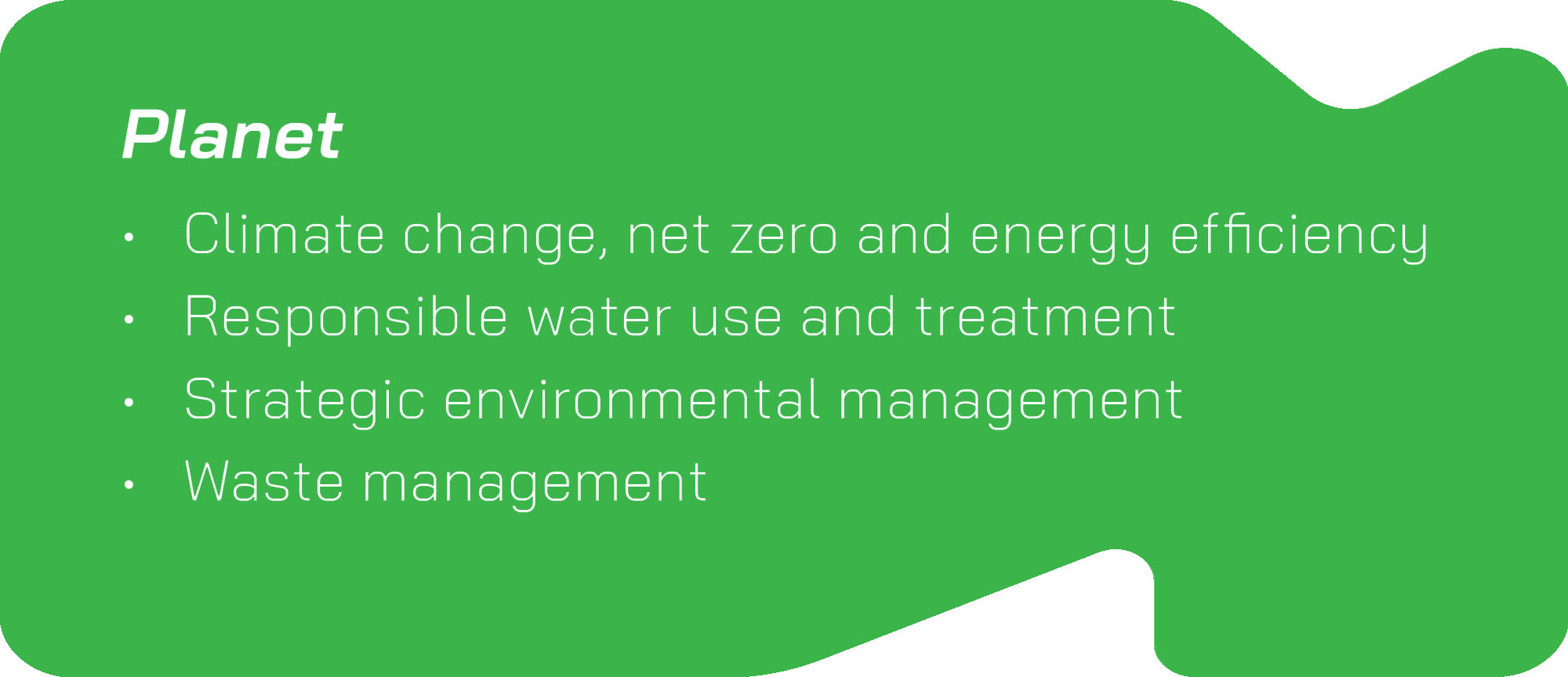

Below we present the list of our most important stakeholders and the communication type we maintain with each of them.
|
communications ㅤㅤInternal |
|
Surveys |
Interviews |
Events |
line Transparency |
Media |
Website |
Volunteering |
media Social |
Annual reports |
reports Quarterly |
meetings Annual |
reports Quarterly |
meetings Monthly |
meetings Weekly |
Workshops |
Phone calls |
visits Community |
Monthly reports |
|
|
Proeza's shareholders |
x |
x |
x |
x |
x |
x |
x |
x |
x |
|||||||||||
|
Associations |
x |
x |
x |
x |
x |
x |
x |
x |
x |
x |
x |
x |
x |
x |
x |
x |
x |
|||
|
Authorities |
x |
x |
||||||||||||||||||
|
Rating agencies |
x |
x |
x |
x |
x |
|||||||||||||||
|
Educational centers |
x |
x |
x |
x |
x |
x |
x |
x |
x |
x |
x |
x |
||||||||
|
Customers |
x |
x |
||||||||||||||||||
|
Collaborators |
x |
x |
x |
x |
x |
|||||||||||||||
|
Industry peers |
x |
x |
x |
|||||||||||||||||
|
Community |
x |
x |
x |
x |
x |
x |
x |
x |
x |
x |
x |
x |
||||||||
|
Board members |
x |
x |
x |
x |
||||||||||||||||
|
Directors |
x |
x |
x |
x |
x |
|||||||||||||||
|
Financial brokers |
x |
x |
x |
x |
||||||||||||||||
|
Investors |
x |
x |
x |
x |
x |
|||||||||||||||
|
NGOs |
x |
x |
x |
x |
x |
x |
x |
x |
x |
x |
x |
x |
x |
x |
x |
x |
x |
|||
|
Suppliers |
x |
|||||||||||||||||||
|
Business associates |
x |
|||||||||||||||||||
|
Media |
x |
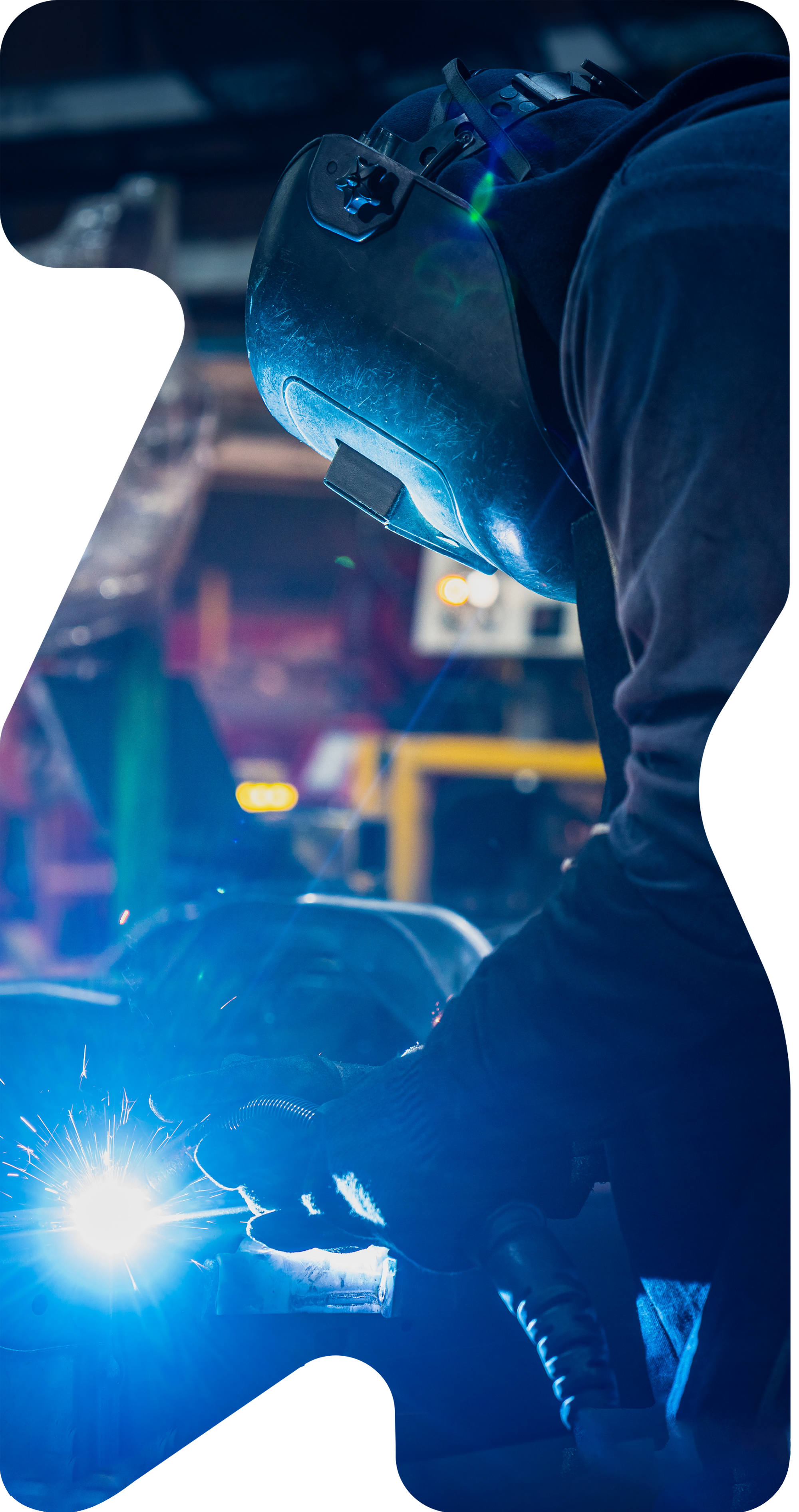
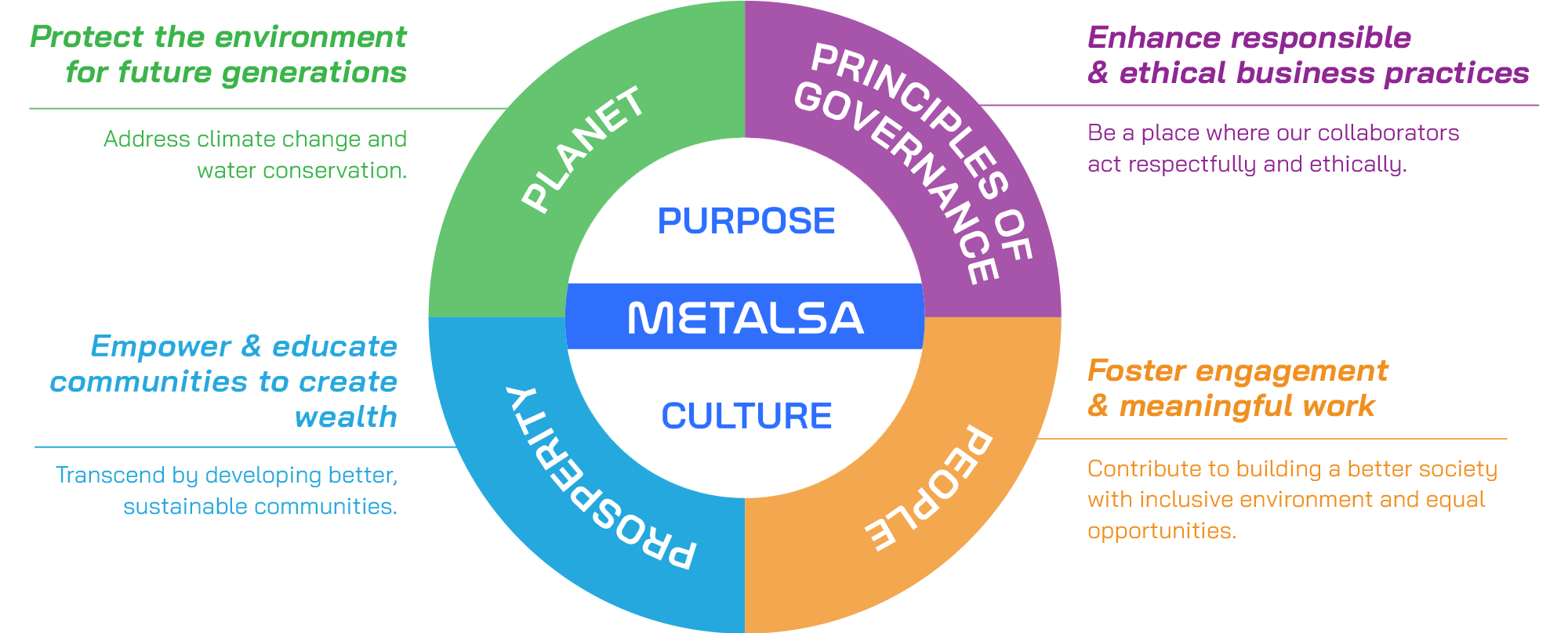
At Metalsa, we want to contribute to a better world for future generations and go beyond expectations from a business perspective by leaving a positive mark on the people and the communities we are part of. We are aware that the world is changing at a fast pace. Therefore, topics such as regionalization vs globalization, the future of work related to workforce expectations, exponential growth in urbanization, global warming, resource scarcity, and tech breakthrough are considered as part of our 2030 vision.
We are seeking to evolve and be part of our industry’s future while ensuring profitable growth, protecting our planet, and caring for our people and communities through a clear and structured governance framework that allows us to succeed in this endeavor. We are evolving the way to create value to be at the forefront of the automotive industry. We exist to create a positive impact on our people, communities, and planet.
Our stakeholders in general (customers, collaborators, financial institutions, rating agencies, governments, communities, etc.) are increasingly expecting more decisive actions from us, to contribute to a more sustainable future. We are up to this challenge by being committed to be agents of change. The deployment of our new corporate sustainability framework will enable us to actively participate for a better tomorrow.
The following actions in each of our four pillars will allow us to continue thriving in our sustainability journey.
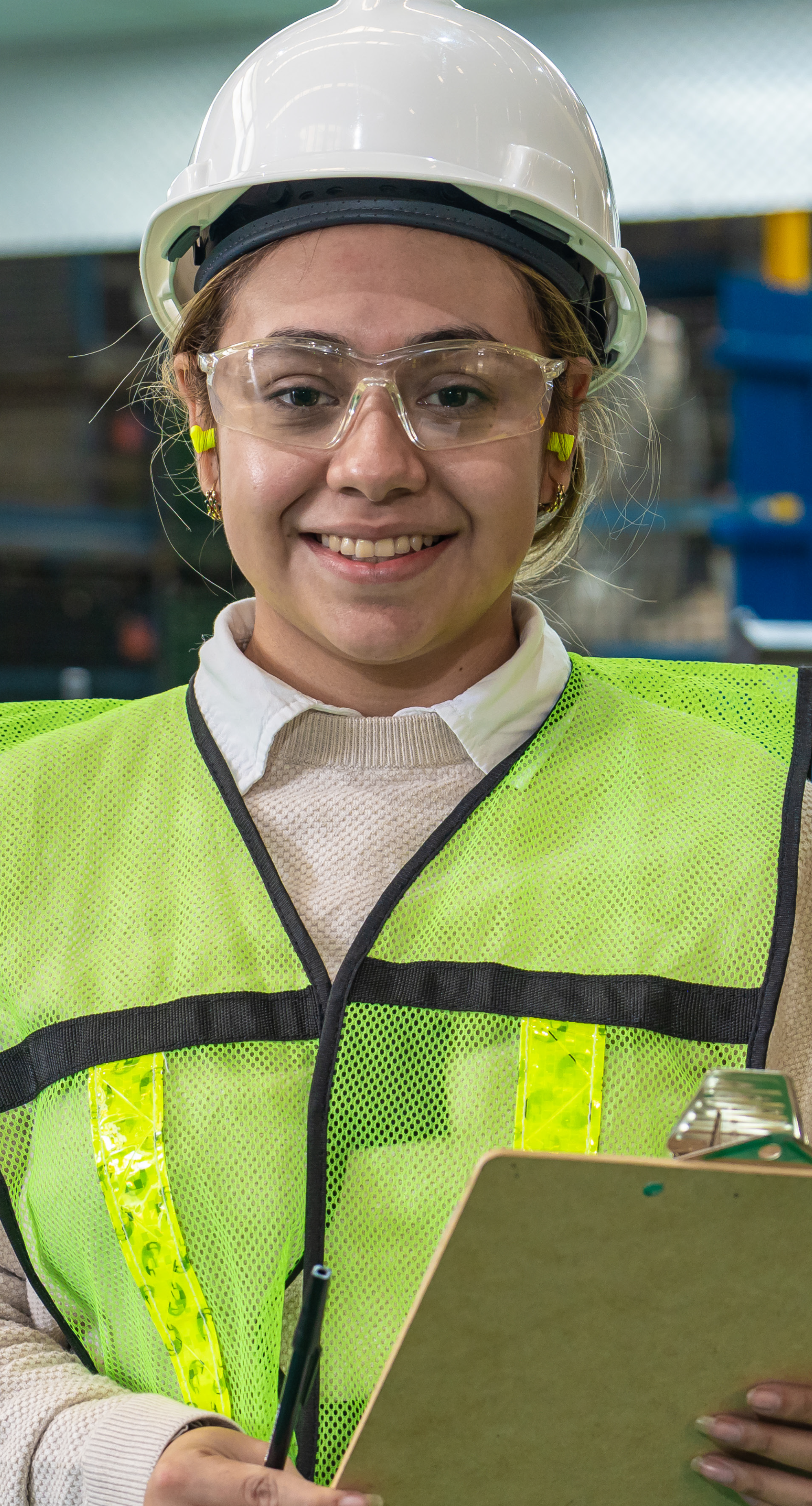
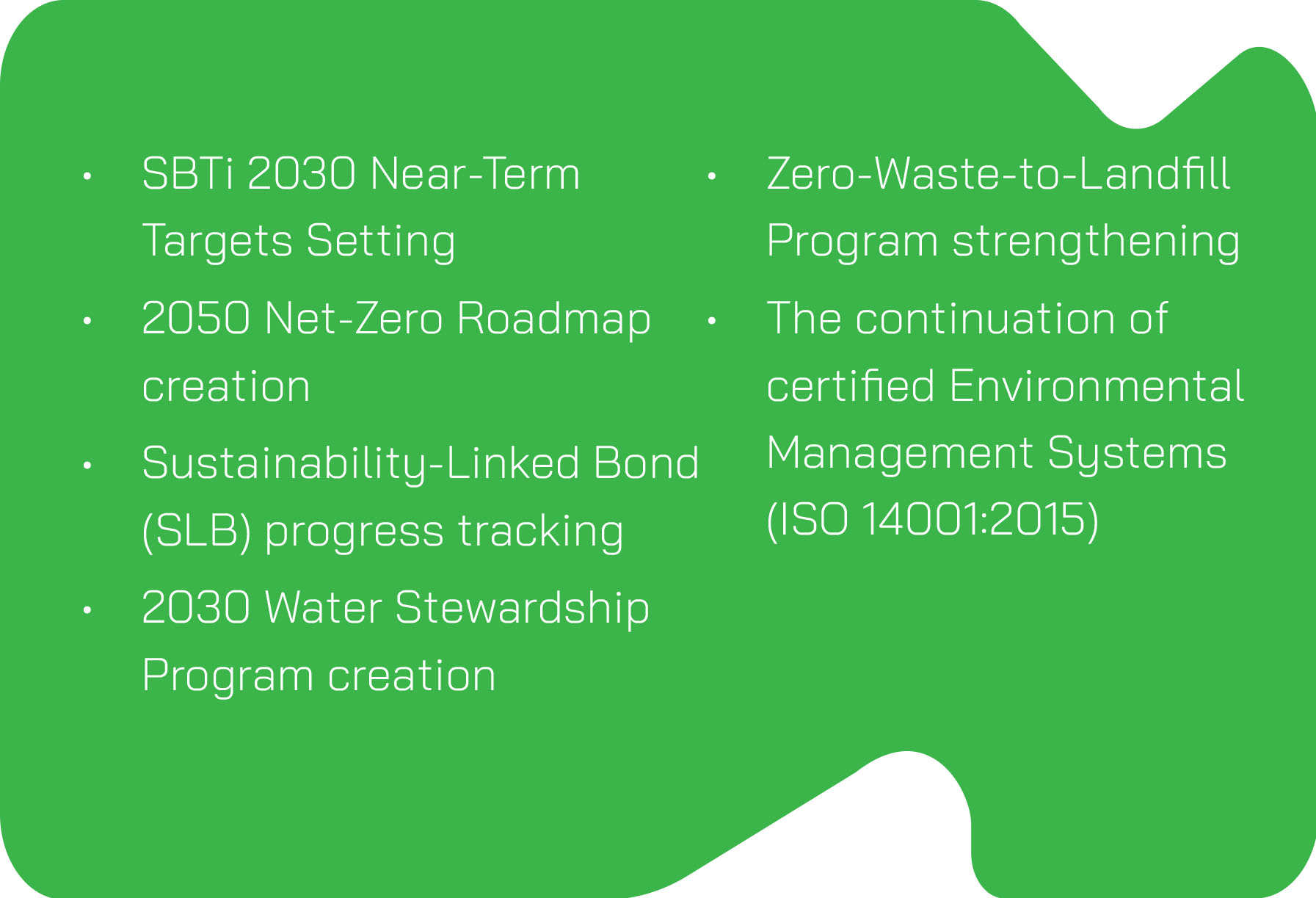
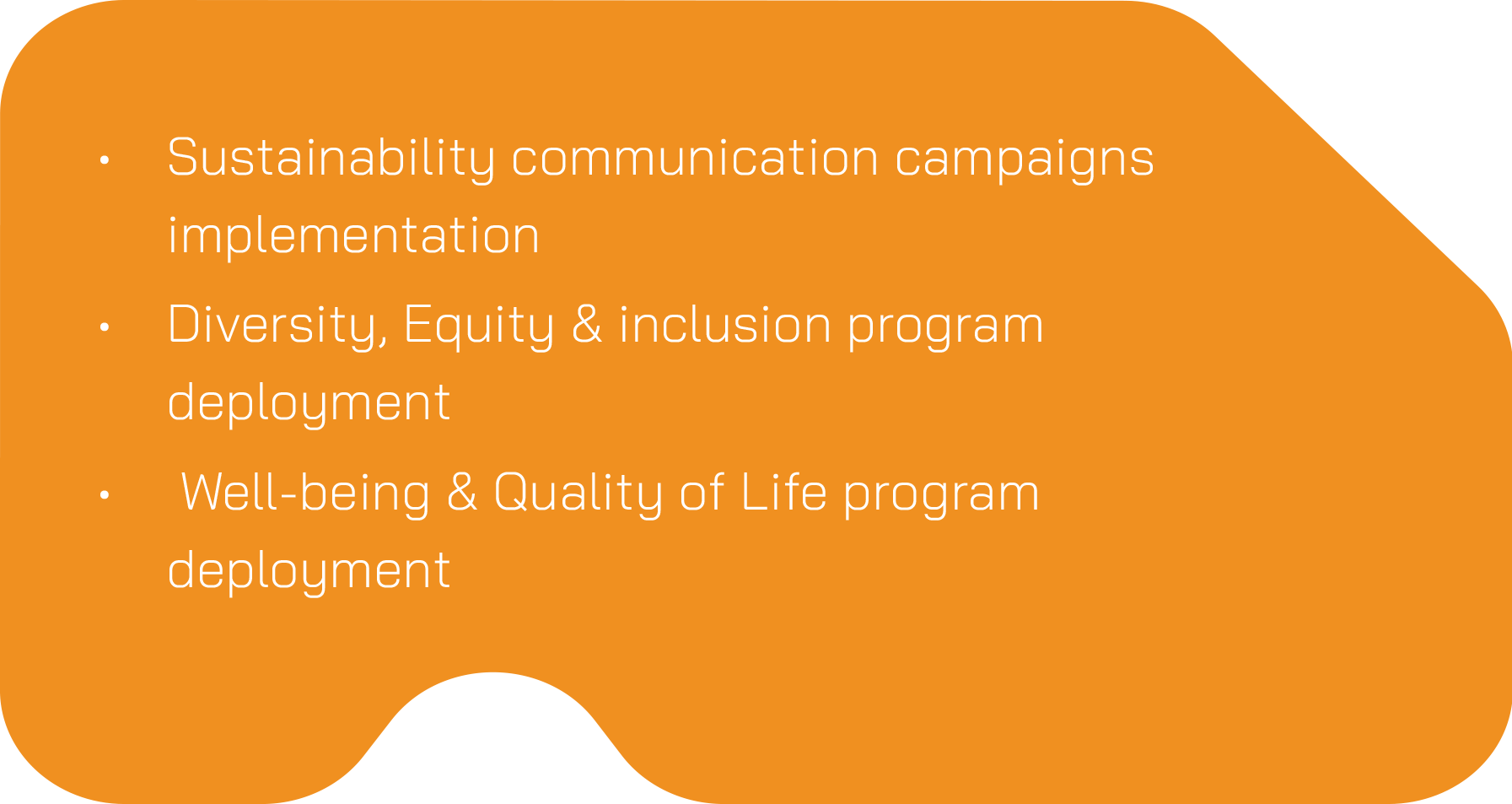
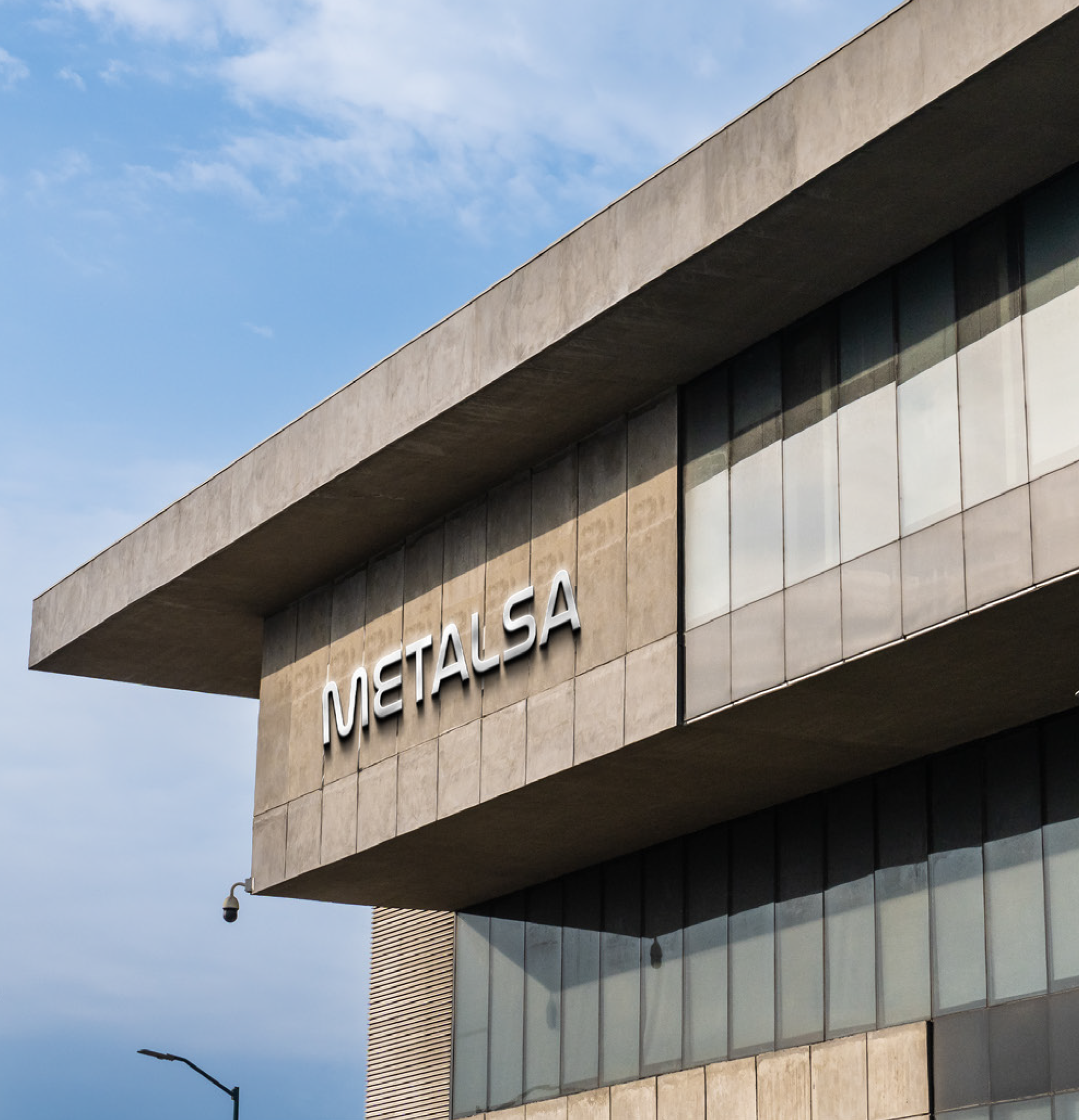
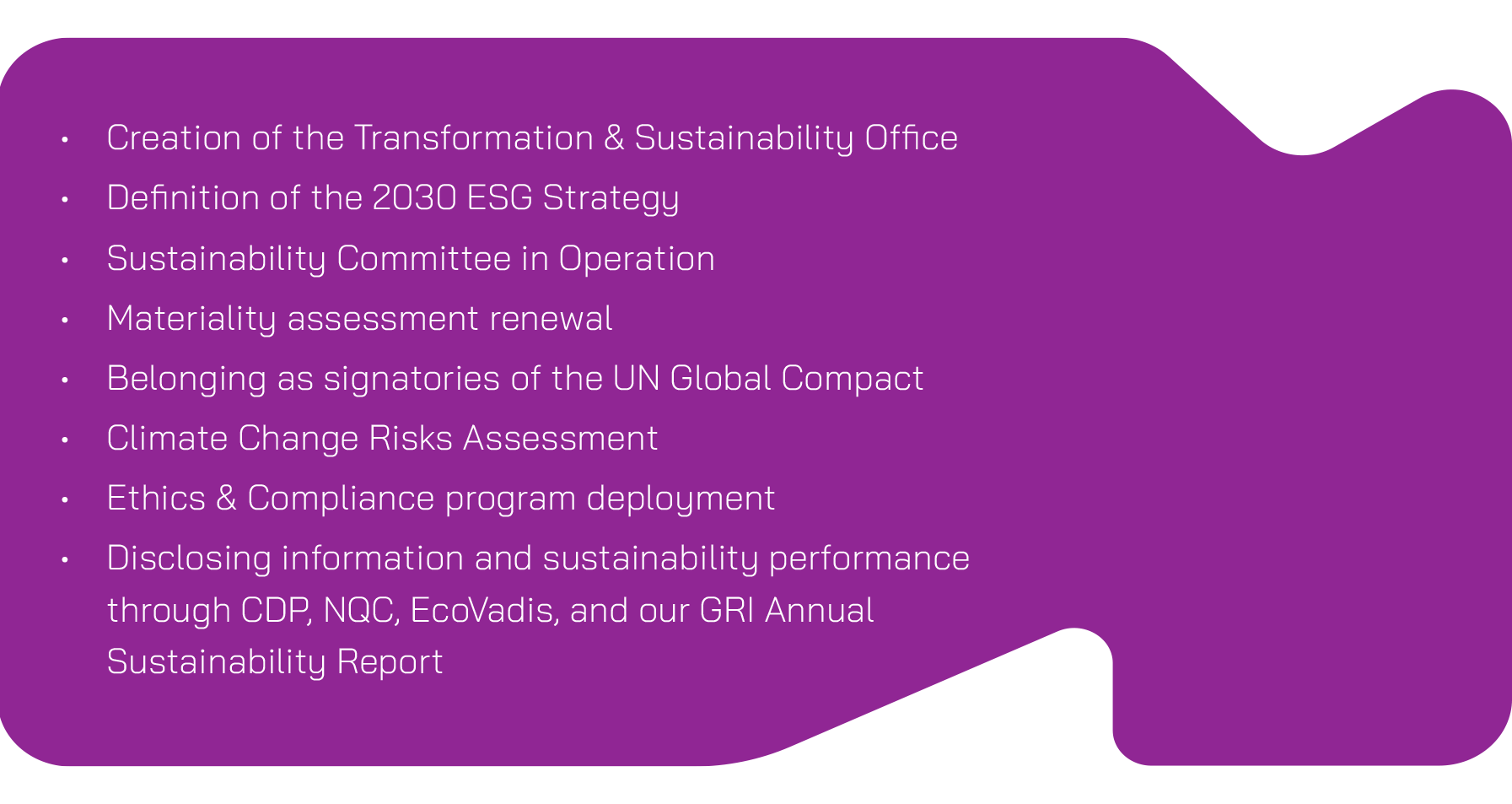
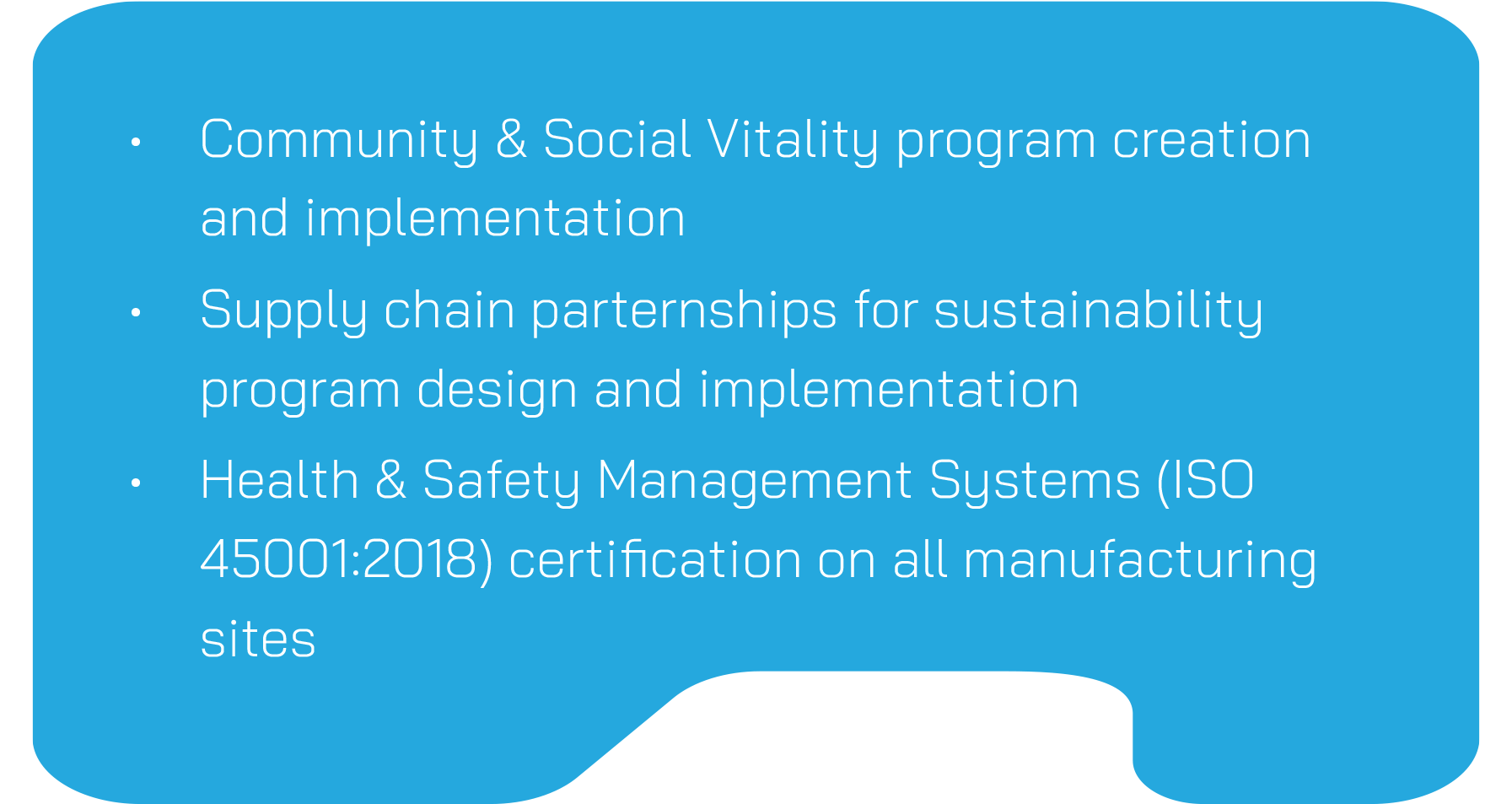
In 2022 we conducted an assessment to identify, assess, and prioritize the risks and opportunities associated with environmental, social, and governance issues that could affect our company’s long-term sustainability and financial performance. We identified 17 risks and, after prioritizing, 12 out of those 17 were defined as relevant. In 2023 we will complete the development of the risk management strategies to address them.
Unsafe conditions in our plants
This possibility may lead to serious injuries, financial losses (fines, insurance, delays on product delivery), and potential shutdowns, impacting our collaborator’s well-being and operational integrity
Climate change impacts on our facilities
The possibility of severe climate change impacts on our facilities causes destruction on asset and shutdowns of some manufacturing sites, affecting production and disrupting the supply chain causing loss of income and profitability, consequently putting us out of the business.
Adverse economic
geopolitical events
Events such as fiscal policies or inflation may disrupt our supply chain, inflate raw materials cost, reduce income, profitability, and cause production delays and manufacturing sites disruptions
Non-compliance of Third-Party Contracting policy
This possibility may lead to suppliers violating international labor standards (child labor, forced labor, human rights violations, etc.), resulting in reputational and economic consequences, including sanctions and damaged client relationships.
Insufficient human and time resources
This may cause delay on program execution, resulting in falling behind on strategic goals, leading to a loss of competencies for growth and decreased business performance
Neglective due dilligence and corrective actions in our supply chain
This may result in environmental damage, failure to meet stakeholder expectations, tarnished reputation, reduced competitiveness, and potential fines and loss of business
Failing to execute and communicate strategy
The possibility of failing to execute and communicate effectively Metalsa’s strategy (including ESG purpose), causes misalignment of the objectives, generating competitive losses and affecting income by offering no differentiators to our clients.
Cybersecurity
network breaches
A network breach caused by ransomware, spyware, or malware poses a risk of disrupting day-to-day operations, damaging reputation, leading to income loss, and potentially exposing sensitive information of stakeholders.
Non-eco-friendly solutions for expansion
Focusing exclusively on economic growth for business expansion and innovation without considering eco-friendly solutions may result in increased reputation damage, waste management complexity, loss of competitiveness, higher expenses, and potential delays or failure to deliver products.
Environmental capital in existent & future product
The possibility of not including environmental capital (energy & water mgmt., renewable energy sources) for our existent and future productions sites, causes interruptions on business continuity and the communities we are part of, generating bad reputation, loss of competitiveness and profitability.
Bureaucratic
decision making
This may lead to delayed responses to market challenges and trends, resulting in competitive losses and an adverse impact on income, hindering our ability to offer differentiators to clients, ultimately affecting the company’s market position.
Sensitize the organization
Sensitize the organization to ensure better controls and perceptions of the initiatives implemented.
Furthermore, we carried out a climate change risk assessment to acknowledge the possible meteorological impacts on our operations and prevent any risk on our business. This assessment focused specifically on acute and/or chronic climate physical risks associated with extreme weather events globally and per each one of our manufacturing facilities. During 2023 we will work on this global risk quantification and develop strategies to mitigate them.
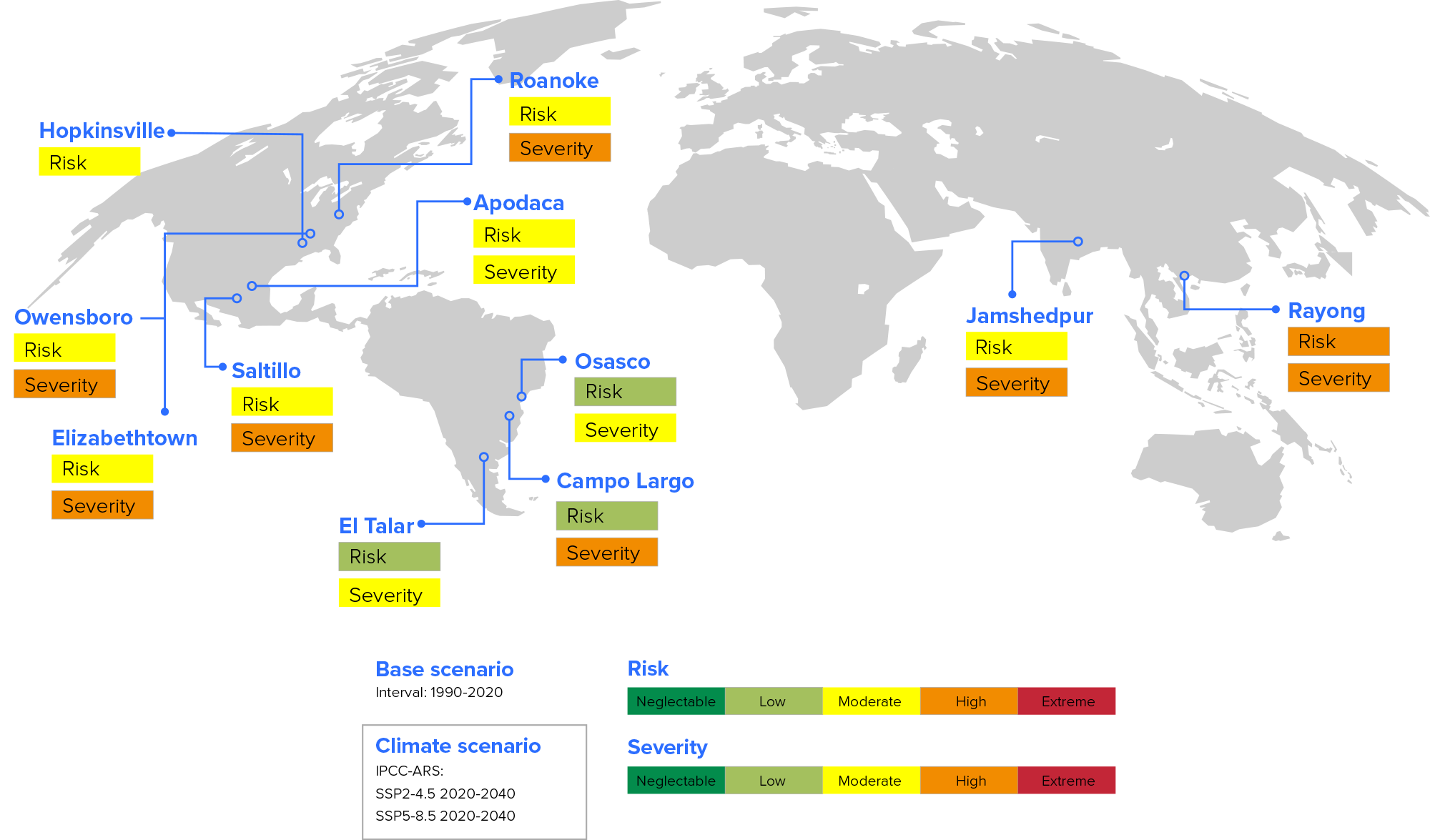
| CLIMATE CHANGE IMPACT | OPERATIONAL RISK | PLANTS AT RISK |
| Heat Waves |
• Rising energy costs |
Apodaca, Elizabethtown, Hopkinsville, Jamshedpur, Owensboro, Rayong, Roanoke |
| Floods |
• Property and building damage |
Campo Largo, Elizabethtown, Hopkinsville, Jamshedpur, Owensboro, Rayong, Roanoke |
| Extreme winds |
• Physical damage to infrastructure |
El Talar, Campo Largo, Elizabethtown, Hopkinsville, Jamshedpur, Owensboro, Osasco, Owensboro, Rayong |
| Electrical storms |
• Business interruptions |
Elizabethtown, Hopkinsville, Jamshedpur, Owensboro, Rayong |
| Drought |
• Reduced water supply |
Apodaca, Campo Largo, Roanoke |
| Tornadoes |
• Serious property damage |
Hopkinsville, Owensboro |
| Tropical storms |
• Serious material damage to infrastructures |
Rayong |
We are committed to contribute to the 2030 Agenda and the Sustainable Development Goals (SDG). This agenda was approved in September 2015 by heads of state and member countries of the United Nations. The 2030 Agenda explicitly calls on the business sector to align its operations to ensure sustainable and inclusive development. The 169 goals set for 2030 are the guide so that our sustainability strategy really has a positive impact on our stakeholders and future generations.
